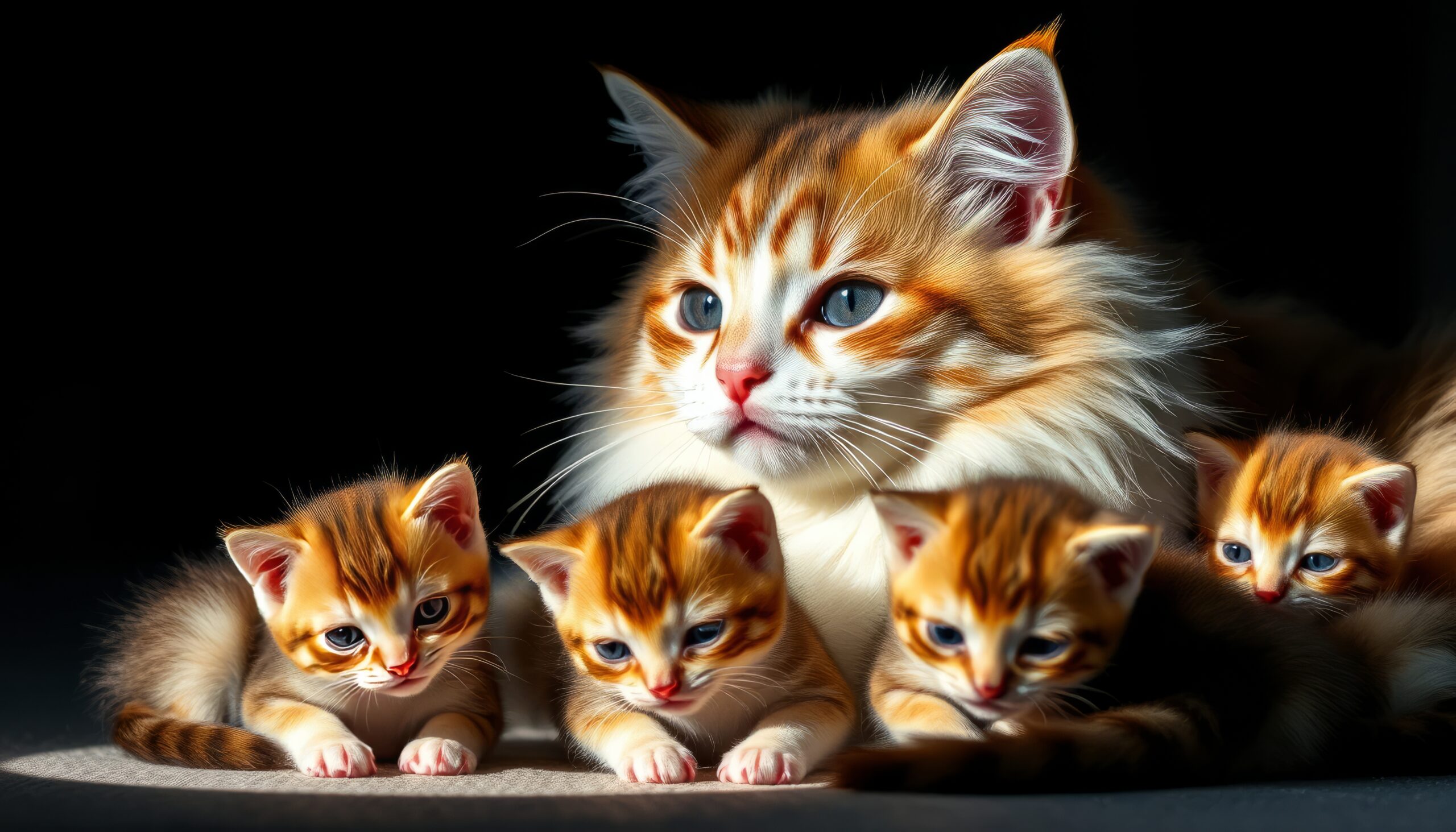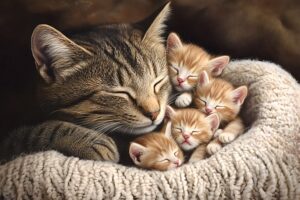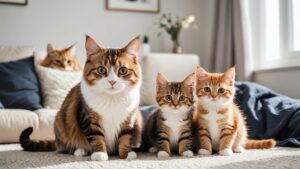
All cat owners have probably questioned if kitten food meets the nutritional needs of their mature cats. The presence of older cats consuming younger cats’ food bowls or your desire to give your cats the same food for convenience often sparks this question. Should kitten food be considered an appropriate dietary choice for senior cats?
The following blog investigates whether kitten foods are suitable for older cats while comparing nutritional components of kitten and adult cat diets and providing guidance on selecting optimal diets for your pets.
Understanding Kitten Food vs. Adult Cat Food
The question of whether senior cats can consume kitten food requires knowledge about the nutritional differences between these two food types. Manufacturers produce different versions of kitten food and adult cat food because each cat age group requires unique nutritional requirements.
How Kitten Nutrition Differs
Kittens need increased amounts of calories together with protein and fat and specific vitamins and minerals to support their fast growth and energetic development. Kitten food often contains:
- The growing bodies need additional calories and fat for development.
- The dietary requirement of protein is higher in kitten food because it aids in developing their muscles and tissues.
- Extra DHA (Omega-3s) for brain and eye development.
- Smaller kibble size or softer texture for tiny mouths.
Nutritional Needs of Older Cats
The metabolic processes of older cats differ from those of younger felines alongside distinct health risks. Some senior cats may require:
- A reduced calorie content helps older cats maintain proper weight because their metabolism becomes slower.
- The diet should include proteins which are easy to digest to preserve muscles while avoiding excessive stress on kidney functions.
- Joint support nutrients like glucosamine or chondroitin.
- The decreased physical activity of older cats requires dietary fiber supplements to improve their digestive health.
The nutritional ingredients between kitten food and senior cat food exist in different directions. The dietary restriction applies only when kitten food becomes the exclusive food source for older cats.
Can Older Cats Eat Kitten Food? The Short Answer
Feline baby food is safe for older cats to consume occasionally. The Short Answer
Older cats can consume kitten food occasionally yet it should not replace their standard diet. Here’s why:
- OCCASIONAL BITES ARE NOT HARMFUL. Senior feline can occasionally eat feline baby food without suffering any health problems. The nutritional composition of kitten food makes it suitable for occasional consumption by cats.
- The extended consumption of kitten food leads to health complications. Giving kitten food to cats past their adulthood causes digestive troubles that lead to weight gain and nutrient imbalances.
- It is acceptable for older feline to consume kitten food under specific circumstances.

The following scenarios make it acceptable to give kitten food to senior cats:
- Weight Gain for Underweight Cats
The high calorie and fat content in feline baby food provides benefits to senior cats who are underweight or have trouble eating. Tastier formula acts as a powerful attractant for cats who are difficult to feed.
- Certain Health Conditions
The recovery process for sick or postoperative cats requires additional nutrients to rebuild their strength. Kitten food serves as a nutritious high-calorie food that senior cat can easily digest during their recovery period.
- Pregnant or Nursing Senior Cats
The nutritional requirements of pregnant or nursing older cats rise due to their intensive physical state so they need a diet rich in nutrients. The nutritional needs of senior cats increase so kitten food provides adequate nutrition for their bodies.
Consult your veterinarian about kitten food suitability for your cat because each animal requires different care.
When to Avoid Kitten Food for Senior Cats
The feeding of kitten food to senior cats should be avoided under these specific circumstances:
- Older cats with obesity problems will develop additional weight because kitten food contains high levels of fat and calories.
- Old feline with kidney disease should not consume kitten food because of its high protein content.
The Selection of Suitable Dietary Options for Your Aging Feline
The nutritional needs of senior cats remain essential for maintaining their health together with their happiness. Your older cat will thrive with the right diet selection which follows these guidelines:
- Look for Age-Specific Formulas
- Select food products from brands that specifically develop nutrition for senior cats. These typically offer:
- Lower calorie content
- Controlled protein levels
- Added joint and digestive support
- Discuss with Your Vet
Before making diet changes you must seek veterinary advice particularly when your aging cat faces existing medical conditions.
- Introduce New Foods Gradually
- Older cats can be finicky. A food transition should take place over seven to ten days by mixing rising amounts of new food with their current diet.
Quick Comparison Table | Kitten Food vs. Senior Cat Food
To summarize the differences:
|
Nutrient Needs |
Kitten Food |
Senior Cat Food |
|
Calories |
High |
Moderate, often lower |
|
Protein |
High |
Controlled |
|
Fat |
High |
Moderate |
|
Fiber |
Low |
Higher |
|
Joint Supplements |
Not included |
Often included |
|
Omega-3 DHA |
Higher (for brain and eye development) |
Moderate |
Frequently Asked Questions
Q1. Does feeding kitten food to senior cats lead to weight gain in their bodies?
Regular consumption of kitten food with its high calorie and fat content will result in weight gain for older feline.
Q2. When can I provide kitten food to my mature cat?
Veterinary supervision allows the safe use of kitten food as either a treat or short-term dietary choice. The use of kitten food should be limited as a treat because it does not replace appropriate cat food for their age.
Q3. Do older cats have suitable dietary needs to share food with kittens?
Each cat needs different nutrients which is why separate feeding is recommended. The consumption of excessive high-calorie kitten food by senior cats results in obesity.
Q4. The consumption of kitten food proves harmful to cats who suffer from kidney problems.
The excessive protein content in kitten food creates stress for damaged kidneys thus making it an inappropriate choice for cats with kidney disease.
Wrapping Up | Tailoring Meals to Aging Cats
The consumption of kitten food by older cats remains acceptable but should not become their regular dietary choice. Senior cats require specific nutritional needs which can be addressed by using diets that match their age group. You should consult with your veterinarian about creating a customized diet for your older cat because it ensures their wellness.
Your feline companion will live their happiest senior moments when you provide them with essential nutritional care through diet.

Leave a Reply